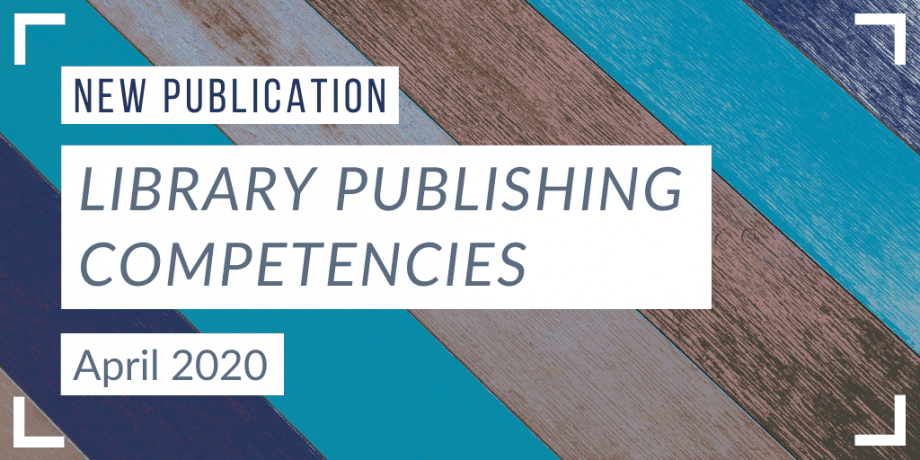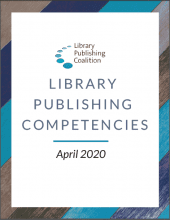
Intersections: Library Publishing and Scholarly Societies
By Melanie Schlosser
Intersections is an occasional series where community members reflect on what they are seeing in other parts of their professional world and what library publishers can learn from it.
By Lauren B. Collister, Director, Office of Scholarly Communication and Publishing, University of Pittsburgh Library System, lbcollister@pitt.edu, @parnopaeus
Many people who come to librarianship have a background in a particular discipline of scholarship. In my case, this disciplinary experience is not just in the past, but rather an ongoing engagement with a scholarly discipline through work for a scholarly society. This work not only gives me insight into the lived experiences of scholars in my discipline who are attempting to carry out the open scholarship and publishing practices that we in the Library Publishing community often advocate for, but also presents opportunities for me to share resources and knowledge that can help the society and its members with their work. I hope that by sharing my experience with one scholarly society, I can inspire other people in our field to consider engaging with a disciplinary scholarly society as a way to not only develop and hone your own skills, but also to bring the practices and values of the library publishing community to the disciplines.
In my case, my scholarly background is in linguistics, and the scholarly society for linguists in the United States is the Linguistic Society of America (LSA). I was a student member during my PhD days; not only was I involved as a local host for the conference when it was in Pittsburgh, but I also took advantage of several of the training workshops as well as the job listings. When I transitioned to library work in 2013 with a new position in the library publishing program at the University Library System, University of Pittsburgh, my membership in the society lapsed for a few years because I was very busy learning about my new job. However, when I heard that the LSA was planning its 2016 Annual Meeting in Washington, D.C., and that part of the conference would include an Advocacy Day at the Capitol and meetings with Senators and Representatives, I was excited to sign up again to go back to the LSA conference.
The opportunity to advocate for linguistics, the discipline where I first felt like a scholar, was what drew me back to the Society, and while at the Annual Meeting I discovered another opportunity: the newly-formed Committee on Scholarly Communication in Linguistics. I attended the first meeting and immediately signed up. As a Scholarly Communications Librarian with a PhD in Linguistics, what more perfect service opportunity could there be?
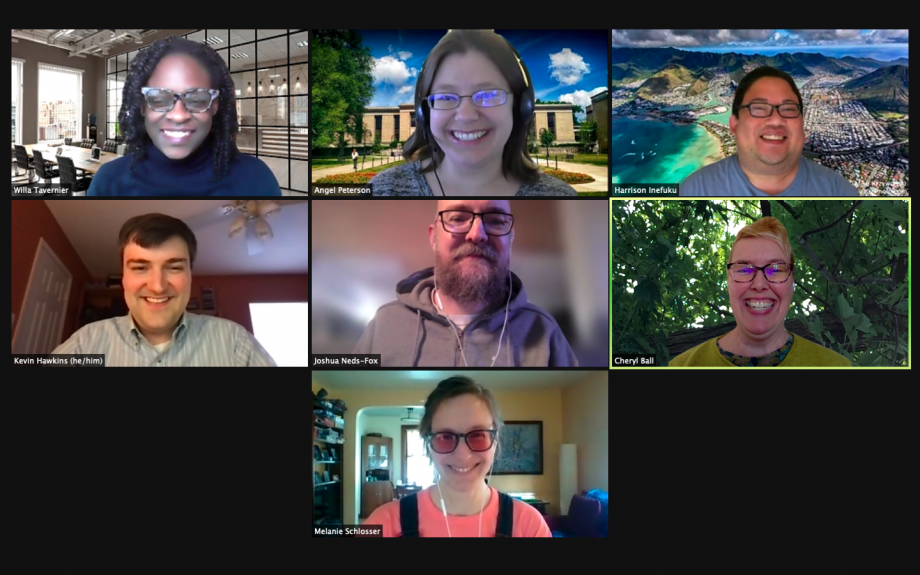
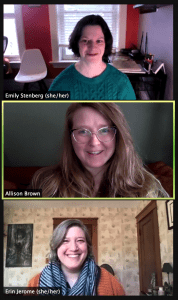 This Kudos recognizes Allison Brown (SUNY Geneseo), Erin Jerome (University of Massachusetts), and Emily Stenberg (Washington University St. Louis) for their stellar work on
This Kudos recognizes Allison Brown (SUNY Geneseo), Erin Jerome (University of Massachusetts), and Emily Stenberg (Washington University St. Louis) for their stellar work on 
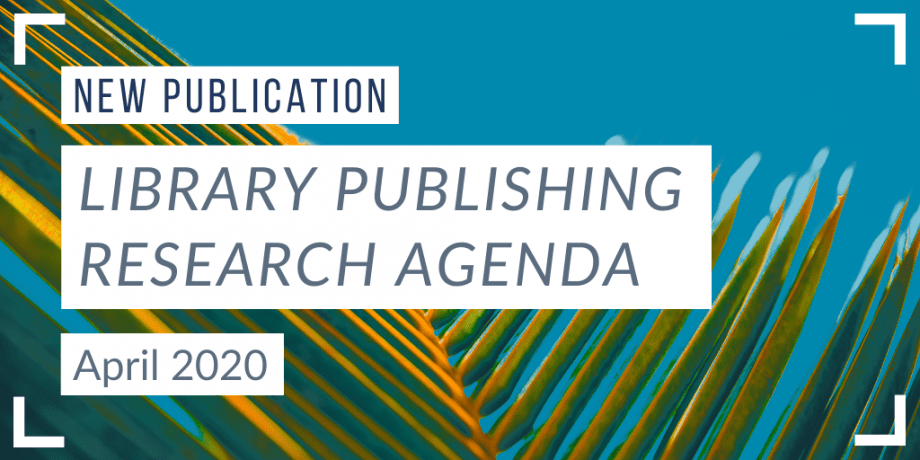
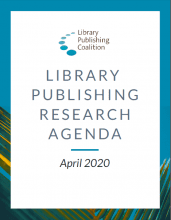 How to use the
How to use the 